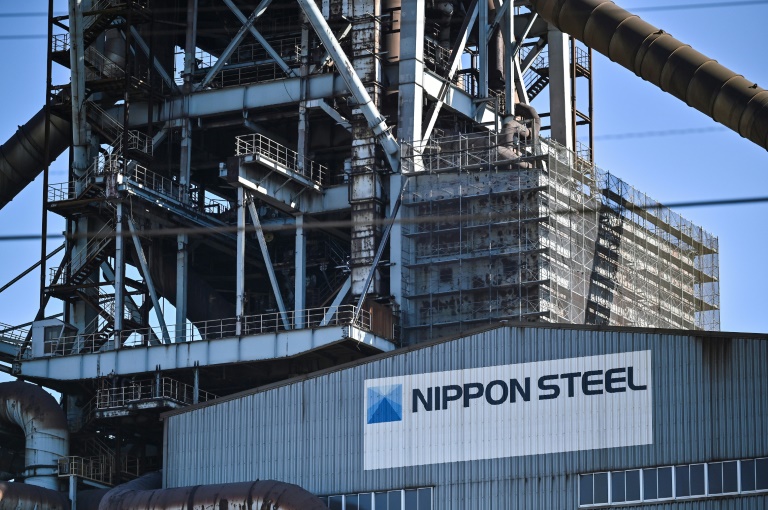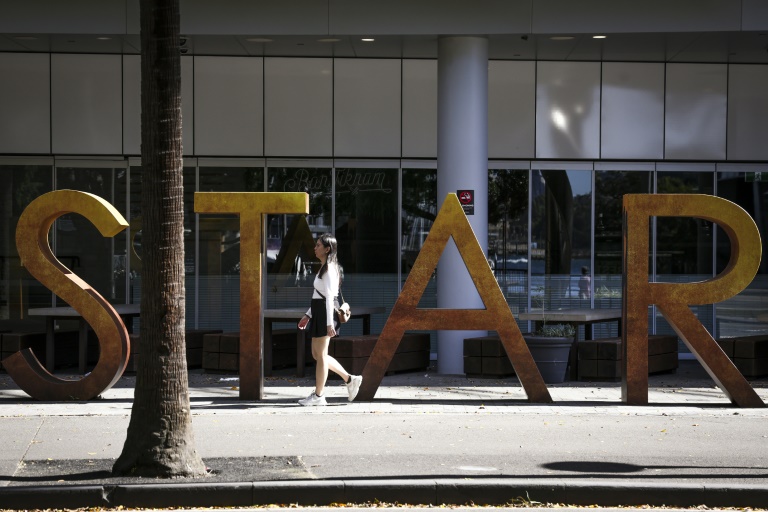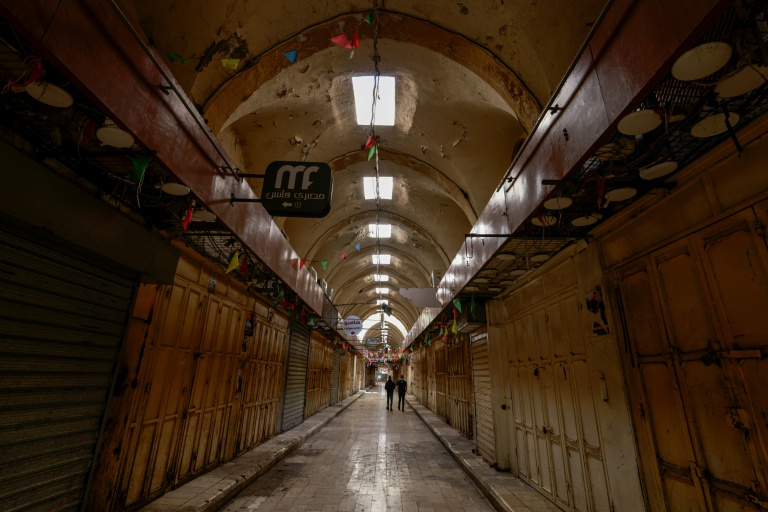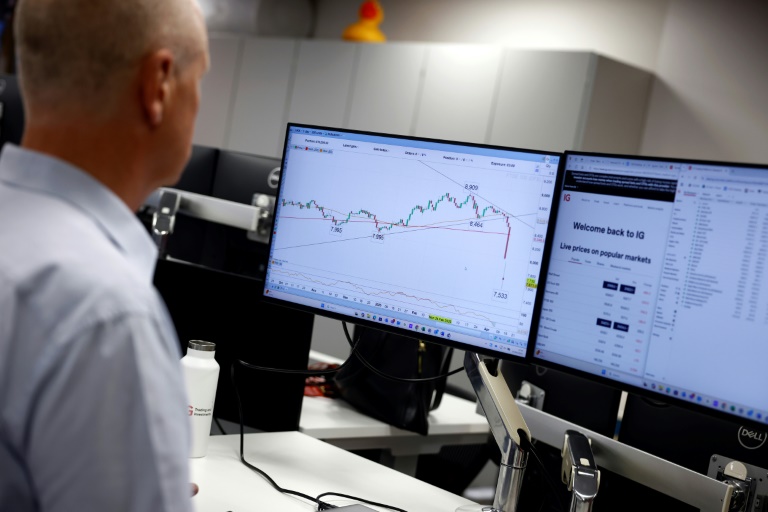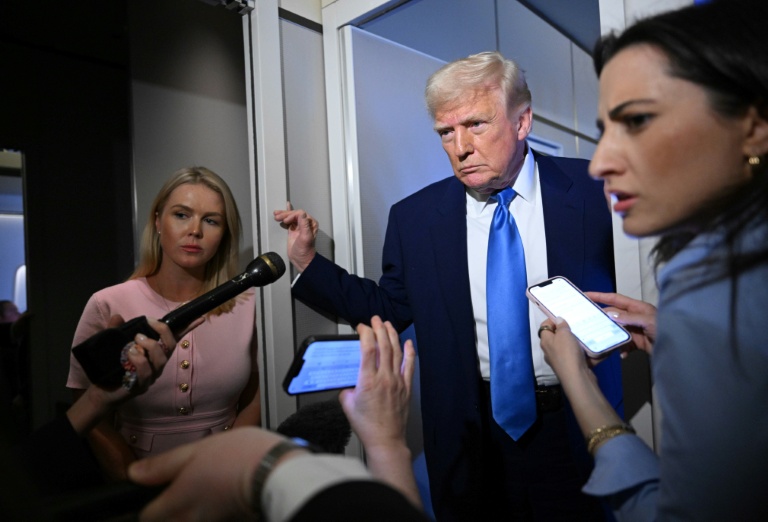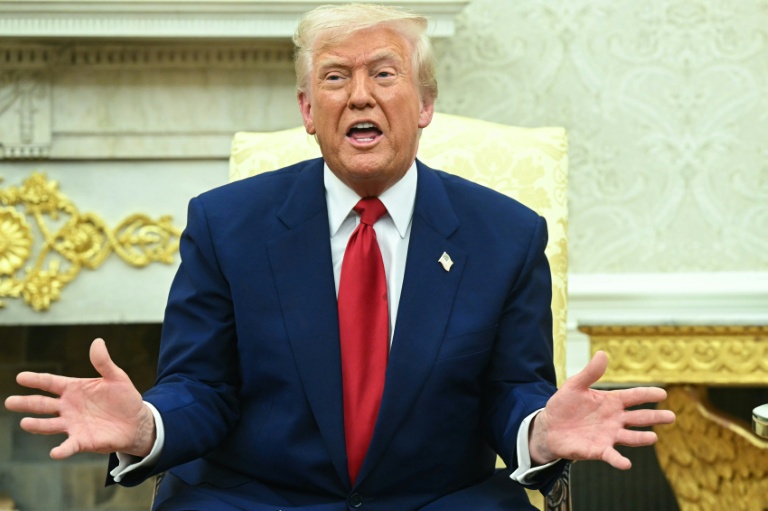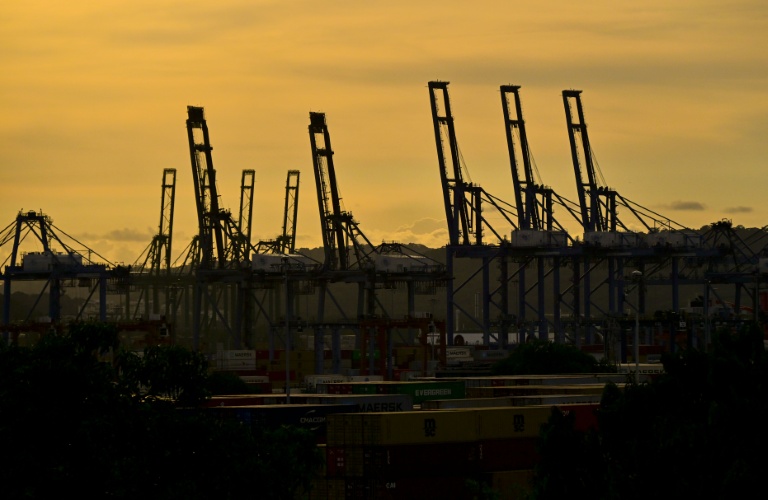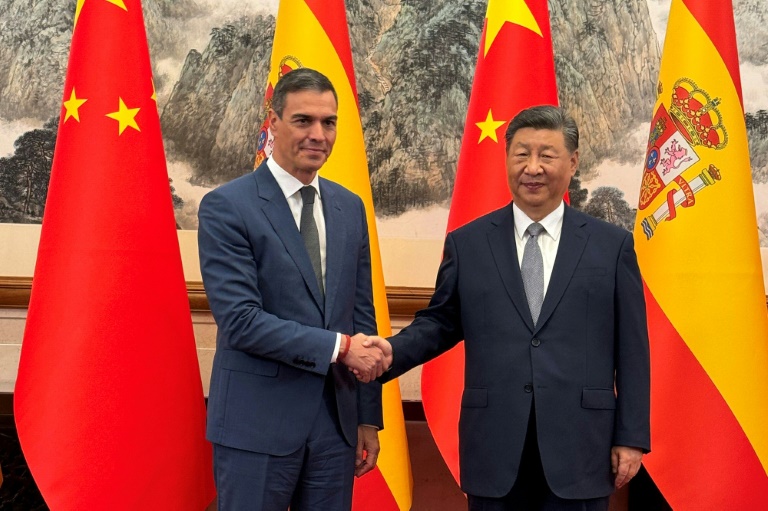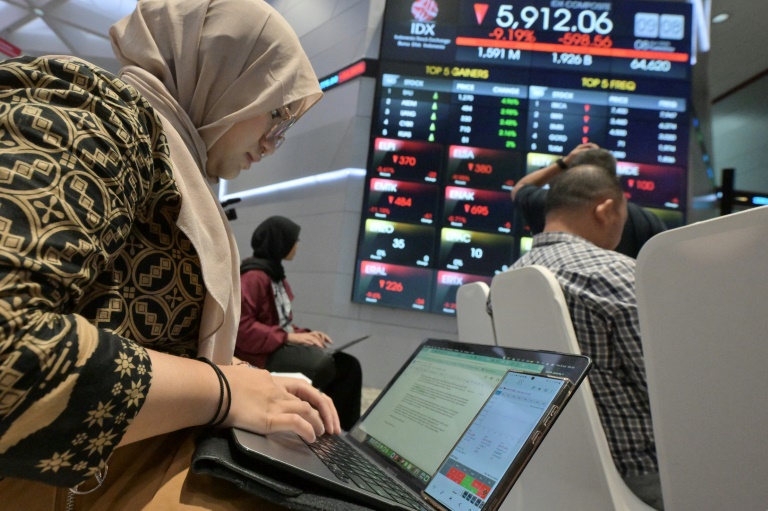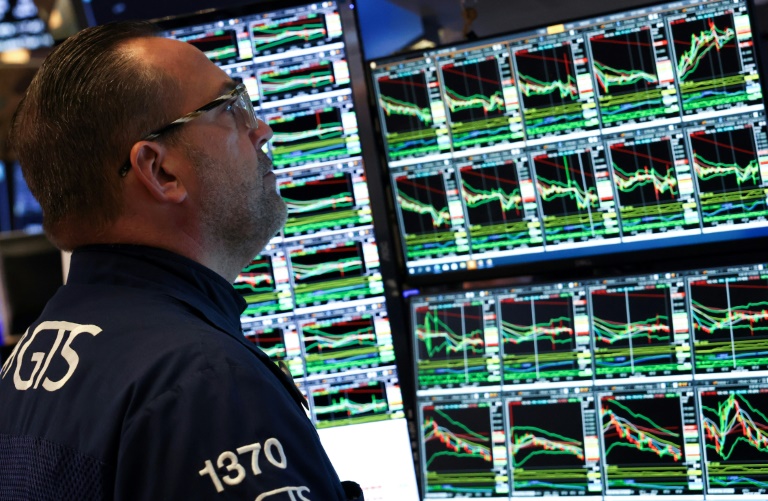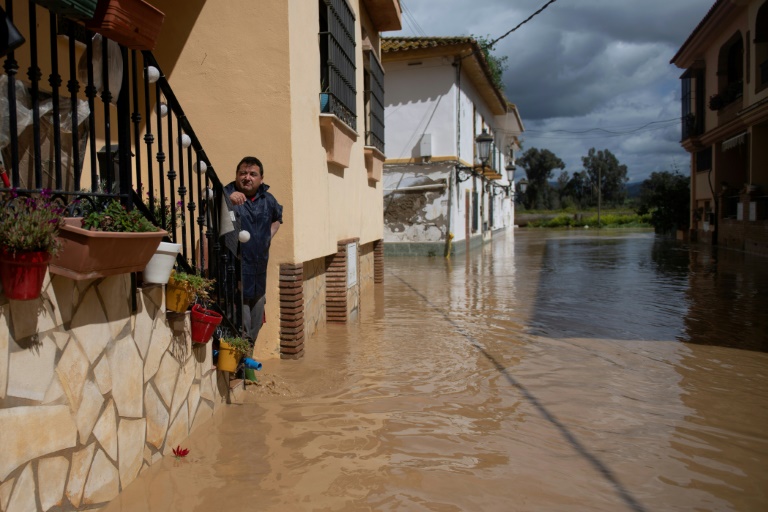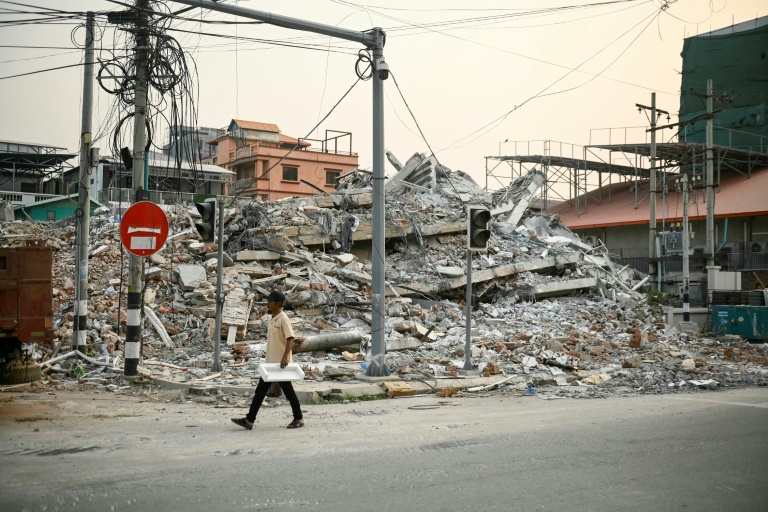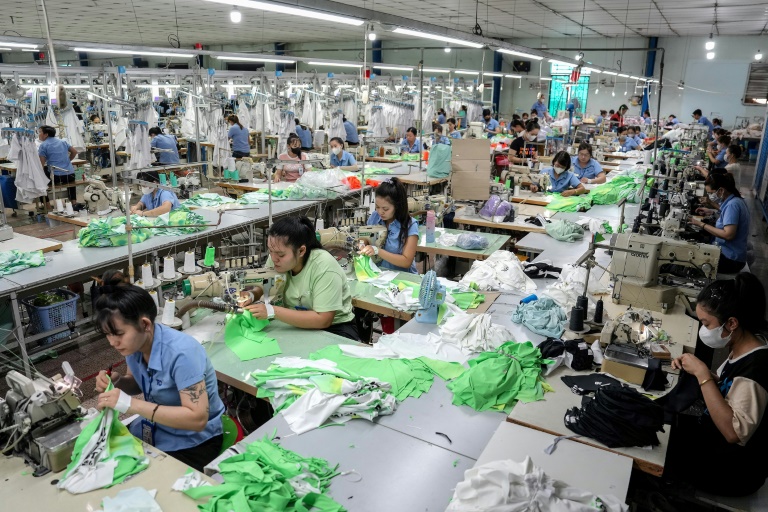Hong Kong (AFP) – Asian and European markets battled Tuesday to recover from the previous day’s tariff-fuelled collapse, though Donald Trump’s warning of more measures against China and Beijing’s vow to “fight to the end” raised concerns of a spiralling trade war. Equities across the world have been hammered since the US president unveiled sweeping levies against friend and foe, upending trading norms, sparking talk of a global recession and wiping trillions of company valuations. Investors fought to claw back some of those losses as they try to assess the possibility that Washington could temper some of the tariffs.
Tokyo traded up more than six percent — recovering much of Monday’s drop — after Japanese Prime Minister Shigeru Ishiba held talks with Trump. However, the US leader’s threat to hit China with an extra 50 percent tariffs — in response to its 34 percent retaliation in kind — ramped up the chances of a catastrophic stand-off between the two economic superpowers. Trump said he would impose the additional levies if Beijing did not heed his warning not to push back against his barrage of tariffs. China fired back that it would “never accept” such a move and called the potential escalation “a mistake on top of a mistake”.
If Washington “insists on a tariff war and a trade war, China will definitely fight to the end”, China’s foreign ministry spokesman Lin Jian said Tuesday. “Pressure, threats and blackmail are not the right way to deal with China,” he said. In light of the turmoil gripping markets, Trump told Americans to “be strong, courageous, and patient”. While uncertainty rules, investors in most markets took the opportunity to pick up some beaten-down stocks. Tokyo jumped six percent, with Nippon Steel rallying just as much after Trump launched a review of its proposed takeover of US Steel that was blocked by his predecessor Joe Biden.
Hong Kong gained more than one percent but was well short of recouping Monday’s loss of more than 13 percent that was the biggest one-day retreat since 1997. Shanghai advanced 1.6 percent after China’s central bank promised to back major state-backed fund Central Huijin Investment in a bid to maintain “the smooth operation of the capital market”. Sydney and Mumbai added more than two percent, while Manila gained three percent. Seoul and Wellington also edged up. London, Paris and Frankfurt rose more than one percent, having dropped more than four percent Monday.
– Worse to come? –
The advances followed a less painful day on Wall Street, where the S&P and Dow fell but pared earlier losses, while the Nasdaq edged up. Others, however, were not as fortunate. Taipei shed four percent to extend the previous day’s record loss of 9.7 percent, while Singapore was off more than one percent. Trading in Jakarta was briefly suspended soon after the open as it plunged more than nine percent as investors returned from an extended holiday, while the bourse in Vietnam — which has been hit with 46 percent tariffs — shed more than six percent. Bangkok sank five percent as it also reopened after a holiday, with losses tempered by the Stock Exchange of Thailand’s decision to ban short-selling on most stocks.
Analysts warned that things could get worse. “If none of the announced tariffs are reversed by deal-making in the next four weeks or so, the global economy risks entering an ‘oil price shock’ type crisis by mid-year,” said Vincenzo Vedda, global chief investment officer at DWS. Pepperstone’s Chris Weston said it was unlikely that China will scrap its countermeasure, “so we assume a high risk that Trump will follow through with an additional 50 percent tariff rate”. And JPMorgan Chase CEO Jamie Dimon told shareholders: “Whether or not the menu of tariffs causes a recession remains in question, but it will slow down growth” and likely increase inflation. The trade war has also put the Federal Reserve in the spotlight as economists say it could send prices surging. Bank officials are now having to decide whether to cut interest rates to support the economy or keep them elevated to keep a lid on inflation.
“Because the tariffs announced thus far are higher than previously expected, we think the risk is now skewed toward more rate cuts by year-end,” said Nuveen chief investment officer Saira Malik. “Our probability-weighted guidance has increased from a total of four Fed cuts through 2025 and 2026 to 6.6 cuts.”
– Key figures around 0810 GMT –
Tokyo – Nikkei 225: UP 6.0 percent at 33,012.58 (close)
Hong Kong – Hang Seng Index: UP 1.5 percent at 20,127.68 (close)
Shanghai – Composite: UP 1.6 percent at 3,145.55 (close)
London – FTSE 100: UP 1.5 percent at 7,815.00
Euro/dollar: UP at $1.0944 from $1.0904 on Monday
Pound/dollar: UP at $1.2766 from $1.2723
Dollar/yen: DOWN at 147.16 yen from 147.83 yen
Euro/pound: UP at 85.74 pence from 85.68 pence
West Texas Intermediate: DOWN 0.2 percent at $60.60 per barrel
Brent North Sea Crude: DOWN 0.2 percent at $64.11 per barrel
New York – Dow: DOWN 0.9 percent at 37,965.60 (close)
© 2024 AFP


